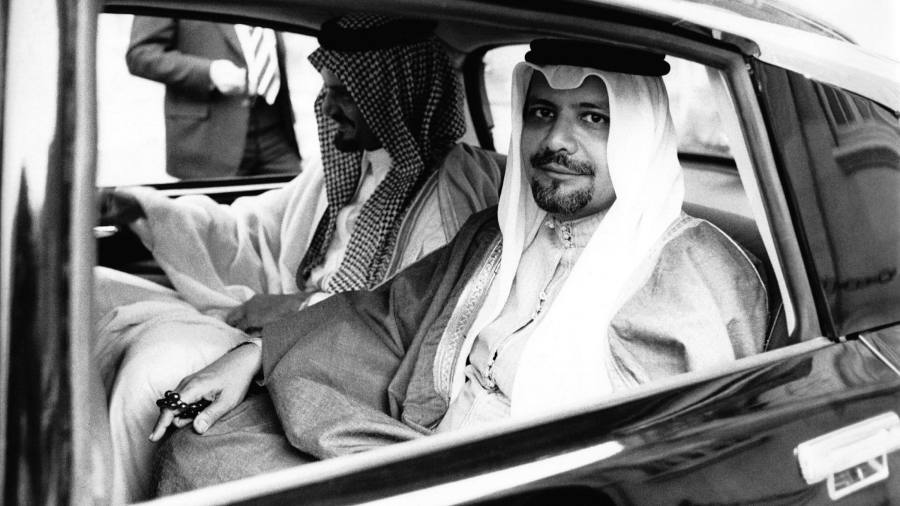[ad_1]
Ahmed Zaki Yamani, the former Saudi oil minister who rose to international prominence by launching oil embargoes on the west and was later kidnapped by Carlos the Jackal, has died in London aged 90.
Opec’s longest-serving minister will be buried in his birthplace, the holy city of Mecca, state television reported on Tuesday.
During almost a quarter of a century as oil minister, Yamani wielded immense power on the global stage on behalf of three Saudi kings. Known for his sharp suits and goatee beard, he became one of the most recognisable Arabs in the world — so famous that a car manufacturer tried to name one of its models the “Yamaniâ€.
Using the honorific title “Sheikh†then bestowed on ministers, Yamani was a commoner whose legal brilliance caught the eye of King Faisal, with whom he would become close. Yamani, the son of a legal scholar, studied law in Cairo, New York and Harvard, setting up a practice in Jeddah on his return to the kingdom. The king noticed the young lawyer’s critical newspaper columns and brought him into government. One of his first jobs was to draft the law ending slavery.
As oil minister, Yamani’s charm, negotiating nous and steely stare were hallmarks of his long tenure from 1962 to 1986. When Middle Eastern states launched a surprise attack on Israel in 1973, Arab producers imposed an embargo on supplies to the US in retaliation for its support for the Jewish state. Prices rose in the wake of the embargo, causing misery for American drivers with long queues at the pump. Arab states first deployed the so-called oil weapon during the 1967 Arab-Israeli war, but to little effect.
Known for his softly spoken approach and forensic debating skills, Yamani’s most remembered quote predicted the demise of oil: “The stone age did not end because the world ran out of stones, and the oil age will not end because we run out of oil.â€
Yamani was also instrumental in the development of Opec into a cartel managing prices and production, shifting power away from the global economies towards a new oil establishment dominated by oil-exporting Gulf states. He also oversaw the process of nationalising the state oil company into what has now become Saudi Aramco.
The oil boom ushered in decades of immense wealth for the Gulf monarchies. Yamani, who came from a modest background, said his wealth came from land donated by King Faisal. Yamani was present when King Faisal was assassinated by his nephew in 1975.
Months later, he was caught in another drama, when Marxist-Leninist terrorist Ilich RamÃrez Sánchez, also known as Carlos the Jackal, took Opec ministers hostage in Vienna, demanding freedom for Palestine.
During the tortuous two-day ordeal, when the hostages were flown around Mediterranean capitals, Carlos told Yamani that he would be executed, along with the oil minister of Iran, then ruled by western ally, the Shah. Carlos opened up to Yamani, talking about his love affairs and growing disillusionment with the class struggle. In the end, the terrorists and hostages were freed in Algiers after negotiations that may have included payment of a ransom.
During the 1980s oil glut and price crash, Yamani — by then a global media figure — fell out with King Fahd over oil policy. He found out from news reports that he was fired.
His later years were devoted to academia, charitable work and investment, including becoming the majority shareholder in the Swiss watch brand Vacheron Constantin.
Yamani was also a founder of Bahrain-based Investcorp, the private equity firm that channelled the newfound wealth of Gulf elites into western assets. He founded an energy think-tank, a centre to restore and preserve Islamic heritage and funded scholarships for students.
“My father said oil would be a curse if it came before education,†said Mai Yamani, his daughter. “He will be remembered for his loving picture of Islam, one which embraced all peoples regardless of religion, gender or race — he had a vision for modernity and progress.â€
[ad_2]
Source link








